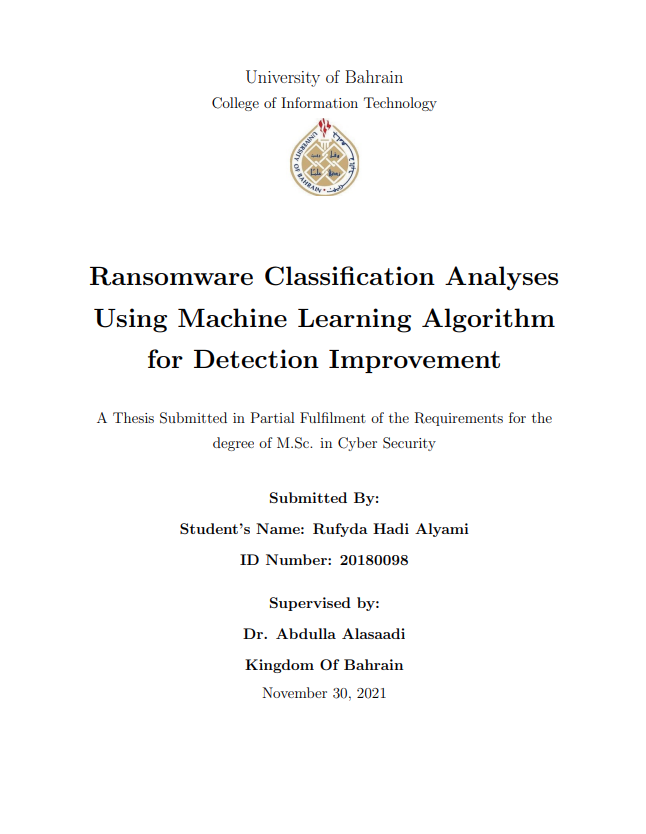المعرف
https://digitalrepository.uob.edu.bh/id/9719fd57-1692-4570-8daf-1175737cd992
Ransomware Classification Analyses Using Machine Learning Algorithm for Detection Improvement
وكيل مرتبط
Alasaadi, Abdulla , مشرف الرسالة العلمية
اللغة
الأنجليزية
مدى
[1], 2, 8, 53 pages
مكان المؤسسة
Sakhir, Bahrain
نوع الرسالة الجامعية
Thesis (Master)
الجهه المانحه
UNIVERSITY OF BAHRAIN, College of Information Technology
الملخص الإنجليزي
Abstract :
With the number of ransomware attacks arose for the past four years by forty-six per cent as per the Symantec Security Report. Ransomware restricts victims from obtaining their files through encoding suspects’ files till a ransom is paid. Malware identification and detection have been studied for many years. Malware can be examined statically or dynamically, and different testing systems have been proposed. Besides that, various malware classification systems have been suggested. In some ways, ransomware is essentially a type of malware, but it has a wide variety of devices. There has been research into the growth of machine learning techniques for ransomware classifying based on behavioral measurements. In this thesis, ransomware behavioral analysis files are collected, and behavioral attributes are deduced from the ISOT Ransomware data-set. Then, to improve accuracy of classification, behavioral classified occurrences were used. An iterative process is used to compute the set of behavioral attributes which can be used to achieve the best performance for ransomware classification. Furthermore, the classification accuracy of various Machine learning algorithms available has been evaluated to classify the new ransomware based on the selected features. The proposed model is then assessed, and the best features that produce a most accurate results are identified. Finally, we found that SVM-SMO algorithm delivered the most accurate outcome with percentage of 94.73 percent compared to other machine learning algorithms use same data-set attributes. As a result, Sequential Minimal Optimization SVM-SMO considered as clearest option to implement ransom wares assessment in the future data-sets.
المجموعة
قالب العنصر
أطروحات

